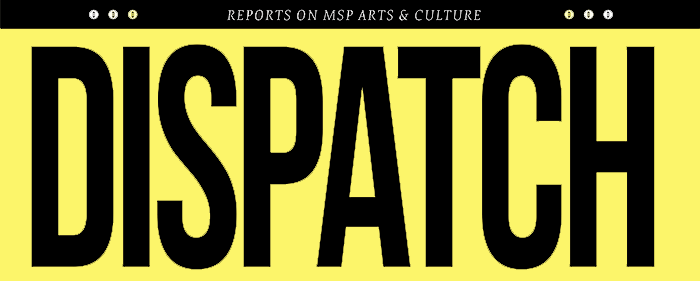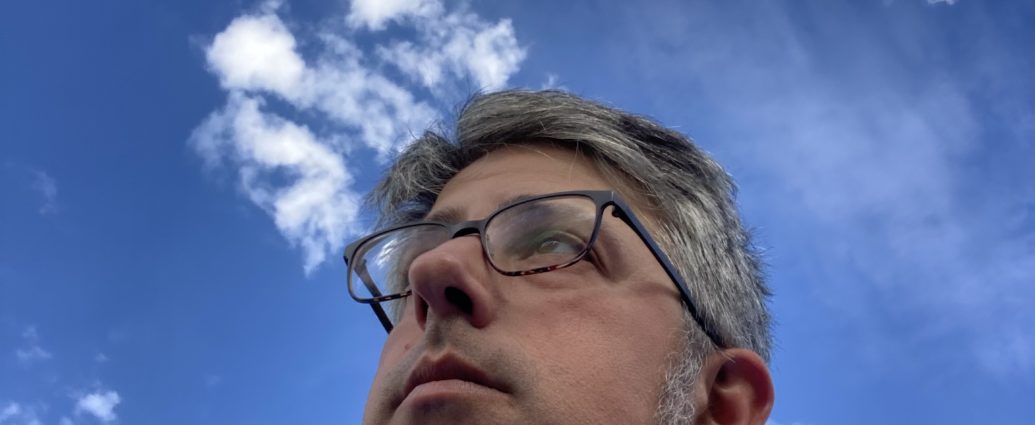Before the big dreams and harsh realities, it was hip hop. It’s always been hip hop.
I was booed off stage twice in my life. Once was while opening for Kenny Loggins at a resort in Idaho that was made to look like an old frontier town and reeked of Wisconsin Dells-level kitsch. That night, our chalet was engulfed by smoke from nearby wildfires. I survived, and that was all I needed to heal the trauma of thousands of angry Idahoans screaming for ‘Danger Zone.’
The other time I was at a poetry slam—which was fashionable for about 10 minutes in the early 2000s—at a bar on the North Side of Chicago that was once a reputed speakeasy of Al Capone’s. This one was painful, but you’re not a poet ’til you’ve experienced some form of soul crushing. I did a poem inspired by New York—in Chicago, remember—which did not go over well. I got my revenge, though: I went back years later and did the same poem but said it was inspired by Chicago. I got a standing fucking ovation.
The Twin Cities does it different. That’s why our music hits different. We’re not a big city. We’re not even a flyover city—there’s nowhere else to fly to! We always had to work together, and rise above the beef and the egos … at least we try. This is rap music, after all.
I’m almost 45, and I’ve reached an age where I recognize the distinction between being humble and engaging in Active Humility. Thus, in the name of the braggadocio that is embedded in the DNA of hip hop culture, Imma drop a few names, and a little science:
Lizzo once told me I was dope and should sing more. Eyedea (may his memory be a blessing) sent me a MySpace message to tell me I’m a good writer. Slug once told a mutual friend that I wrote one of his favorite lines of any local rappers. He also purportedly wanted to punch me in the face after we publicly beefed at a warehouse party I threw when I was 18. I stage dove at First Avenue at the crowd’s request. I rapped to a sold out Red Rocks Amphitheater alongside Matisyahu, and received a Gold Record for my verse on his debut album. Eric Wilson, the bassist from the band Sublime, and I laughed together about how I kept it under the kitchen sink because I felt weird about putting it up on the wall.
But before all the big dreams and harsh realities of music life, it was hip hop—and my pure love for the culture and addiction to its fundamental elements—that shaped me, molded me, allowed me to find fellowship, pride, and power, and to be a part of something so much greater than the sum of its parts.
I spent my youth rapping and playing guitars from Fargo to Amsterdam. I spent my 30s as a restaurateur, co-founding Pimento Jamaican Kitchen. And after a stint doing small business advising for nonprofits, I’ve joined the front lines of the fight for equity and criminal justice reform in the cannabis legalization bill in Minnesota. The throughline that binds my journey, and moreover my relationships, has always been hip hop, and I’m honored to have the opportunity to share just a taste of the deep contributions to the culture our fair cities continue to produce.
The youth give life to hip hop culture. The old guard protects it. The movement continues to evolve, just like our hip hop community in the Twin Cities. As we approach the 50th anniversary of hip hop this summer, I encourage all the old heads to get out of your houses, and out of your heads, and go support the youth in the ways we wish we had been supported by our elders and educators. I hope to live long enough to see the 100th Anniversary. This issue of DISPATCH is a bridge, and I invite you to stroll leisurely across it. Bring a friend.
Hip Hop made the rules, just to see how much we could break them. Hip Hop is a snake eating itself and shedding wildstyle patterned skin. Hip Hop is righteous criminology—the intersection of gangsterism and activism, G-dliness and a G-d complex. Hip Hop is hope.

